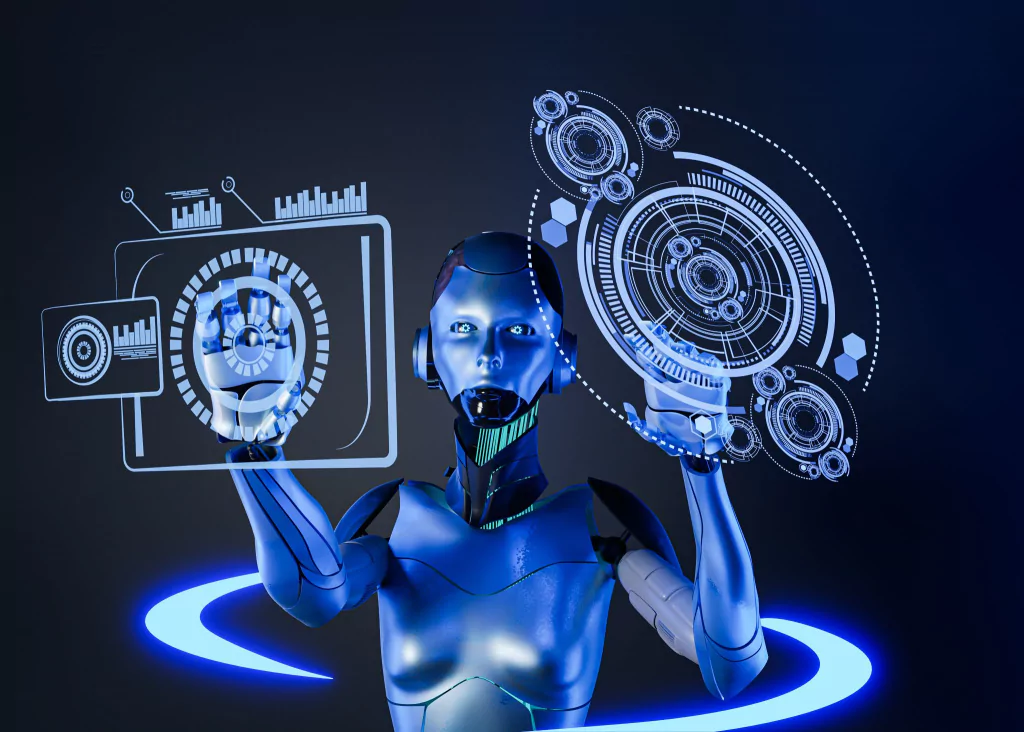As artificial intelligence (AI) continues to make inroads into various sectors ranging from farming and education to healthcare and the military, concerns regarding the technology’s impact on the job market have taken center stage. As mentioned in the recent piece from The Guardian, experts are now divided over AI’s influence, with some viewing it as a catalyst for a brighter future, while others fear it may lead to job obsolescence.

✅ AI Essay Writer ✅ AI Detector ✅ Plagchecker ✅ Paraphraser
✅ Summarizer ✅ Citation Generator

Key Takeaways:
- Many experts argue that AI technologies like large language models (LLMs) should be seen as tools that will transform the way we work, much like the advent of the word processor.
- AI is making significant inroads across diverse sectors such as healthcare, education, call centers, agriculture, and the military. Its applications range from enhancing efficiency to transforming job roles.
- As AI continues to permeate workplaces, ethical and regulatory concerns are emerging. The forthcoming European Parliament’s Artificial Intelligence Act, for instance, may categorize certain AI applications as high-risk.
A Hopeful Outlook
AI’s arrival in the workplace is not a new phenomenon. Nobel laureate Herbert Simon predicted in 1965 that machines would be capable of executing any task a man could within 20 years. Today, these assertions resonate with increasing relevance as we navigate the fourth industrial revolution.
Philip Torr, a professor of engineering science at the University of Oxford and an award-winning research fellow at the Alan Turing Institute, believes that AI will not replace human labor but rather change the nature of work.
“Industrial revolutions in the past have typically led to more employment, not less. I think that we’ll see the types of jobs changing, but that’s just a natural progression.”
He compares the advent of AI, specifically large language models (LLMs) like ChatGPT, to the arrival of word processors – a transformative tool that changed work paradigms. With proper education and regulation, many experts share Torr’s optimism that AI can revolutionize the workplace positively.
Revolutionizing Healthcare
AI’s potential in healthcare is substantial. From diagnosing dementia via smartphone apps to using LLMs for improving patient-practitioner communication, AI could significantly save time for medical staff and improve patient care.
Nevertheless, the technology’s fallibility and the human element’s irreplaceability mean that AI’s role should complement, not substitute, human practitioners. Torr also highlights that AI’s efficiency may not always align with patients’ preferences, emphasizing that people may still prefer human interactions over automated ones.
The Future of Education
AI is already transforming education, but the path it takes will be determined by the choices we make now. Rose Luckin, professor of learner-centered design at University College London Knowledge Lab, warns of a dystopian future where education is cheapened by over-reliance on AI.
“Of course, that will be for the less well-off students. The more well-off students will still have lots of lovely one-to-one human interactions, alongside some very smartly integrated AI.”
She advocates for a balanced approach where AI aids teachers without replacing their invaluable human interactions.
Changing Call Centers
Peter Mantello, professor of media and cyber-politics at Ritsumeikan Asia Pacific University, believes that call centers will increasingly adopt emotional AI, a technology that uses voice-tone recognition to gauge emotional states. Despite its potential benefits, Mantello warns that this form of AI could also serve as a surveillance tool, shaping worker behavior.
Agriculture and AI
Despite the application of AI in climate forecasting and disease modeling, agriculture remains resistant to full automation, according to Robert Sparrow, professor of philosophy at Monash University’s Data Futures Institute. The technology’s cost and inability to manage unpredictable tasks suggest that human agricultural workers are unlikely to be replaced soon.
Military Applications
AI’s military investment is rising, with semi-autonomous drones, tanks, and submarines becoming more prevalent. However, Sparrow raises concerns about automation bias and the cultural implications of AI-driven warfare, cautioning against a future in which machines have more control over warfare than humans.
Conclusion
Despite the varying views on AI’s role in the workforce, one fact remains: AI will irrevocably alter many industries. The challenge lies in harnessing AI’s potential while protecting the workforce’s interests, a task that requires careful regulation, education, and a commitment to preserving the human element in the workplace.
Also read:
Revolution in the Classroom: FB Global Value LLC Introduces AI Lesson Plan Generator
AI-Driven Tool Enhances Teaching and Boosts Student Satisfaction, Stanford Study Reveals
Follow us on Reddit for more insights and updates.





Comments (0)
Welcome to A*Help comments!
We’re all about debate and discussion at A*Help.
We value the diverse opinions of users, so you may find points of view that you don’t agree with. And that’s cool. However, there are certain things we’re not OK with: attempts to manipulate our data in any way, for example, or the posting of discriminative, offensive, hateful, or disparaging material.